5 Common Chicken Ilnesses and Treatments
Intestinal Parasites
Chickens come with a lot of responsibilities. Most days it is the same old mundane routine. Cleaning nesting boxes and cages, changing out water, feeding, and making sure everyone is happy and healthy. One thing we should make a habit of is checking our flock regularly for parasites, illness, injuries and wounds. Raising chickens can be fun and rewarding as long as everyone is happy and healthy. Preventing or treating illness and injuries in time can prevent longer courses of treatments and in some cases death. A rule of thumb is to always quarantine new chickens that you introduce to your flock for at least 48 hours. Training your chickens early on to do health checks will make it much easier as they get older and wiser. Giving treats after a check will train them to be more cooperative in the long run.
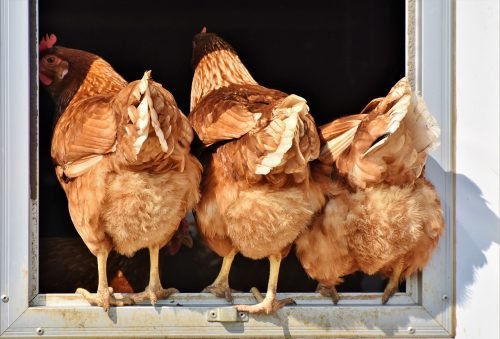
When it comes to intestinal parasites, it may be harder to notice especially if you have free range chickens that eat an assortment of things around the yard. You may not be able to check the consistency of their feces throughout the day, since it will be so widespread. This is why it is important to keep a clean chicken coop, to ensure that you check droppings daily. Keeping things as sanitary as possible also helps prevent the spread of parasites throughout the flock.
Symptoms of intestinal parasites:
Foul smelling feces
Blood
Weight loss
Loose watery, mucus like stool
Loss of appetite
Huddling
Wet, swollen, red or dirty vent
Poor egg production
At this point you should have done an initial deworming of your chickens when they were about 6 weeks old. Most chickens can carry a modest worm load and can fight them off naturally. It is not necessary to do routine worming’s and it is best to have your veterinarian check a stool sample to confirm if you suspect you are dealing with intestinal parasites. There is a debate on what to use in deworming. All-natural or just go for the good stuff. That is up to you and your flock. The all-natural route can be anything from apple cider vinegar, pumpkin seeds, cucumber seeds, garlic and FOOD GRADE diatomaceous earth. The other option is using commercial chemical dewormers that are safe for chicken with ingredients such as albendazole, levamisole, ivermectin (use with caution) and fenbendazole. The benefit of using commercial dewormers is, they are typically broad spectrum and will give you peace of mind that you have the parasites under control. The parasite, Coccidia, is more treatment specific due to its nature to be immune to most dewormers. In this case you will want to use Corid or Amprolium as the active ingredient in your dewormer. This is why it is recommended, when in doubt, to have your veterinarian confirm what you are dealing with. This will help you treat it appropriately and quickly. Inntestinal parasites can take out an entire flock if not dealt with in time.
Lice and Mites
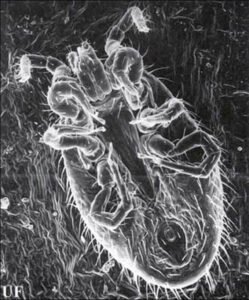
These pesky little bugs are more prominent in the warmer and summer months. Lice feed on dead skin cells and are more a nuisance and just plain gross. Mites actually feed on blood which is more serious. Most commonly your flock may get infested by wild birds or if you introduce a new chicken that is already infested. Another reason to quarantine new chickens you may be adding to your flock.
Symptoms of lice and/or mites:
Missing feathers
Scabs
Constant scratching and rolling around
Biting
Scaly legs
Dirty vent
Reduced egg production
Seeing the actual mites
Treating lice and mites naturally with dust baths of fine sand and dirt to choke out the parasites is a method commonly used. You can also use a fine powder of wood ash to do the same. Food Grade Diatomaceous Earth is another great treatment because it can safely be used on the chickens and in and around their coop. Apple cider vinegar has acidic properties and can be diluted with water (1:2 ratio) and sprayed around the coop for general pest control of bugs and mites. For the more stubborn infestations such as Fowl Mites, Garden and Poultry dust or spray is a great way to treat your coop as well.
Respiratory Illnesses

I cannot stress enough how important a clean coop and nesting area is for your chickens. Dust debris, ammonia buildup and seasonal pollen inside a coop are only good for respiratory distress, which can obviously lead to riskier health issues. Proper ventilation, daily cleaning and low dust nesting material will help reduce the chances of your flock coming down with respiratory illnesses. It is also recommended that if you suspect one or more of your chickens to have a respiratory illness to quarantine them from the rest of the flock to prevent spreading. Mycoplasma Gallisepticum and Mycoplasma Synoviae (MG/MS) are bacterial infections that can quickly spread throughout your flock.
Symptoms of Mg/MS:
Wheezing
Puffy face
Sneezing
Swollen eyes
Eye and/or nasal drainage
Swollen joints
Labored breathing
Lethargy
As with all treatments there are natural remedies. Treating with Oregano as an antibiotic, Turmeric for immune support and garlic for antibacterial properties. There are dry herb mixes, or you can treat their feed and water until all symptoms are gone. As with any illness, wash your hands and minimize contact with healthy chickens to prevent spreading during this time.
Infectious Coryza is another extremely contagious disease in chickens. The bacteria are spread through direct contact with another infected bird. It can be treated with antibiotics if caught soon enough but can live in the soil for long periods of time. Due to that fact this one is a little trickier to contain. This can be identified by your veterinarian with a sinus smear and treatments can be recommended.
Sour Crop
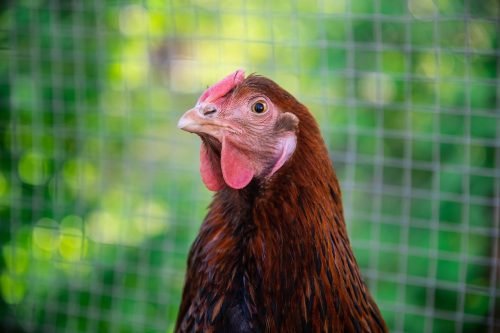
This is typical of free-range chickens that ingest something that is too large to pass through the crop. It can also happen if a chicken gets a yeast infection in their crop, similar to thrush in babies. Their crop should be flat in the morning prior to eating and will begin to fill throughout the day as they eat. If you suspect sour crop, takeaway evening food and water and check first thing in the morning for a full crop.
Symptoms of sour crop:
Lethargy
Loss of appetite
Hunched up
Full and squishy crop before morning feeding
Odor coming from beak
Weight loss
Diarrhea
Decreased egg production
Once identified you will want to withhold food, eating more will only worsen the situation. Giving Apple Cider Vinegar and scent free Epsom Salt (1tspn: cup water) are common detoxifiers that can help with the yeast and/or bacterial build up in the crop. Massaging the crop several times a day to help break up the food so it can be passed naturally. Pay attention to what your chickens are eating to help prevent sour crop. Stringy vegetation, too many worms, and unsanitary coops are the main causes.
Bumblefoot
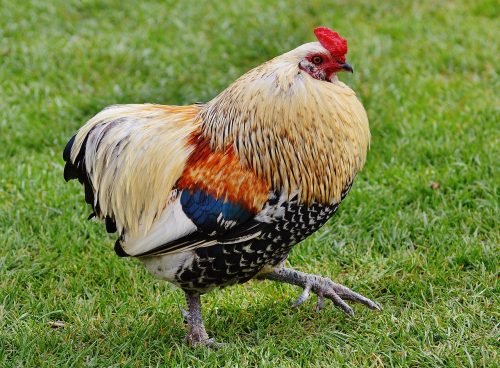
Bumblefoot is a cutesy name for a bacterial infection or inflammation of a wound on the chicken’s feet. Chickens scratch around the yard and run and jump in places they probably shouldn’t. Their curious natures sometimes get the best of them. A cut or wound becomes infected causing a sore or abscess on the foot and of course left long enough can cause more serious problems like sepsis. Treating the wound as soon as possible is the best option.
Symptoms of Bumblefoot:
Limping/pain
Abscess
Drainge/puss
Open wound
Redness
Swelling
Firstly, when treating bumblefoot you need to make sure all debris and scabs are clear from the wound. Sticks, thorns and other things can get lodged in their feet. Secondly, if your chicken cooperates, soaking in Tricide Neo initially for infection and Epsom salt (again is your friends) daily thereafter until healed, can help relieve inflammation and has some antimicrobial properties. Then we like to treat with some sort of antibacterial spray such as Banixx or Vetericyn. After the wound site is clean and clear, rubbing Neosporin ointment and/or Vaseline to protect the wound and prevent it from scabbing over again. Wrapping the foot with vet wrap and medial tape for the first few days to allow the healing process to begin and not allow bacteria and dirt to re-enter the wound is ideal. Inspect their perches and coops for any sources of thorny or splintery materials.
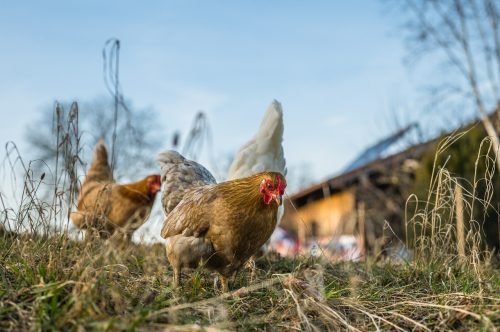
No matter what you do to prevent illness and injury in your flock, you are more than likely to deal with one or more of these issues in their lifetime.I cannot stress enough that keeping a clean coop is the number one prevention. Regular health checks can also aid in catching things before they get out of hand. Stay educated and be prepared for anything that may come your way. For unexpected things stay calm and when in doubt call your veterinarian!
Happy Yard-ing!
